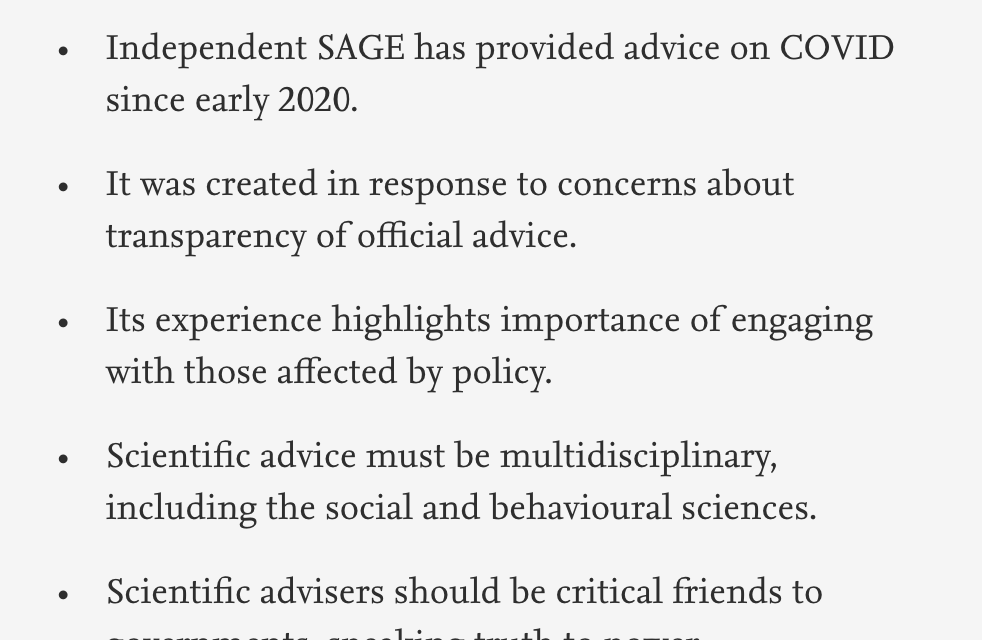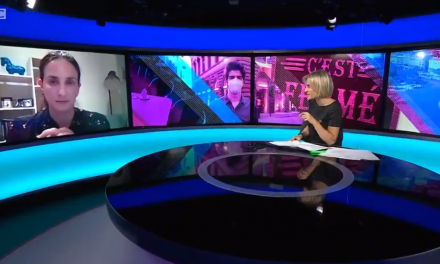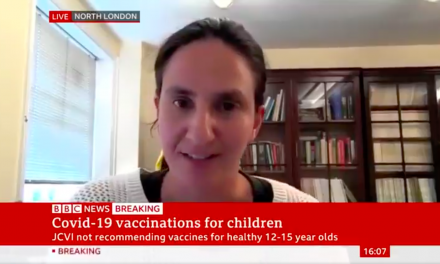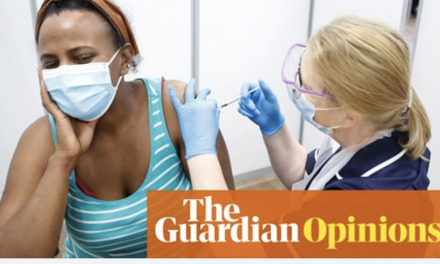The COVID-19 pandemic has shone a light on the complex relationship between science and policy. Policymakers have had to make decisions at speed in conditions of uncertainty, implementing policies that have had profound consequences for people’s lives. Yet this process has sometimes been characterised by fragmentation, opacity and a disconnect between evidence and policy. In the United Kingdom, concerns about the secrecy that initially surrounded this process led to the creation of Independent SAGE, an unofficial group of scientists from different disciplines that came together to ask policy-relevant questions, review the evolving evidence, and make evidence-based recommendations.
The group took a public health approach with a population perspective, worked in a holistic transdisciplinary way, and were committed to public engagement. In this paper, we review the lessons learned during its first year. These include the importance of learning from local expertise, the value of learning from other countries, the role of civil society as a critical friend to government, finding appropriate relationships between science and policy, and recognising the necessity of viewing issues through an equity lens.
Read full article here





